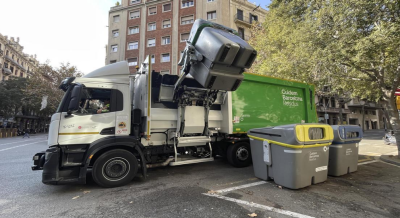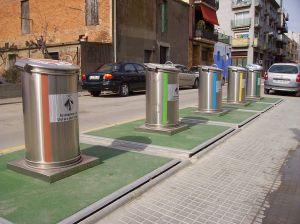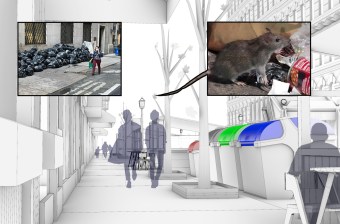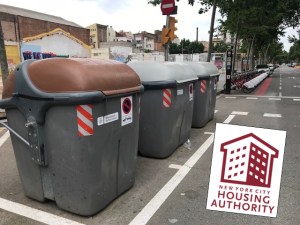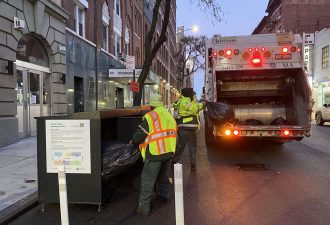EXCLU: Sanitation Department Hires McKinsey for Containerization Study
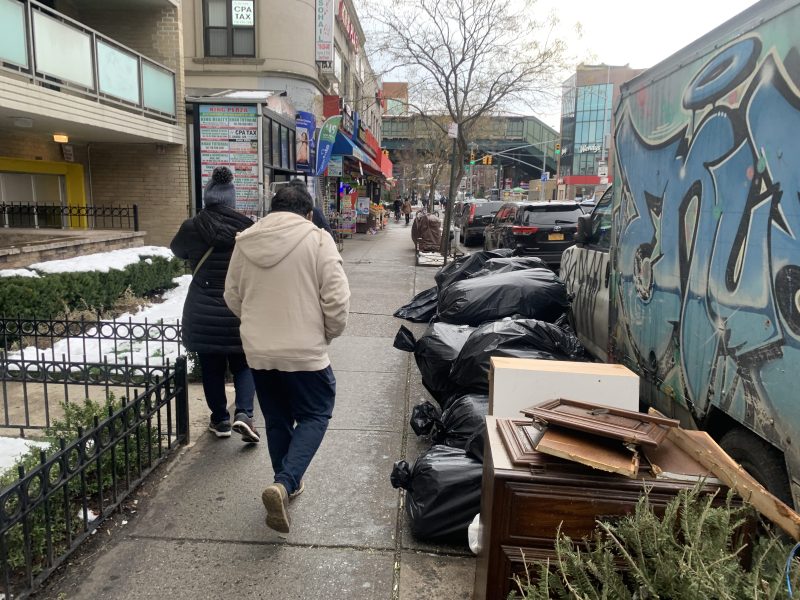
The city has hired the controversial consulting firm McKinsey & Company to study its waste containerization needs and design a citywide pilot program, Streetsblog has learned.
For the next 20 weeks, the global management consulting firm will assess streets across the city with an eye toward what could work in a large, diverse urban environment and identify models for a such as program from among the many different solutions around the world — working with the Sanitation Department to figure out the kinds of containers it needs, find appropriate vendors, and structure costs.
New York is decades behind other world capitals in terms of waste collection and containerization, so there are many models from which to choose. (Barcelona and other cities have underground trash bins that are lifted out for collection.)

The goal is for McKinsey to design a request for proposal that can ensure that “it is not just another pilot, but something that can actually work all over the city,” DSNY spokesman Joshua Goodman said. “In other words, in a matter of months, we will have a final, market-ready Request for Proposals — including recommended commercial terms, performance requirements, and specifications. The details on widespread, scalable containerization in New York City are finally almost here.”
The study is important step in removing New York’s infamous “5 o’clock shadow” — the mountains of leaky, stinking bags that appear on sidewalks each collection day, blocking pedestrians and providing an all-you-can-eat buffet for rats. DSNY will need to change it collection methods in order to accommodate large bins which, unlike the bags that clutter the streets, cannot be lifted solely by human power, as happens on city garbage trucks now. That means outfitting trucks with mechanisms that can hoist large containers — as advocates long have urged. DSNY currently operates a tiny, $1.3-million containerization pilot, Clean Curbs, which has assisted business improvement districts (and will soon assist apartment houses) in acquiring trash enclosures for their waste — but the smallish enclosures have not required any change in collection methods.
“Containerizing New York City’s 24 million daily pounds of trash and recycling is far, far more complicated than many people initially realize,” Goodman said. “How do the containers perform in winter weather, which they don’t really have in Barcelona? Who is responsible for removing snow from them on each side? How do they work on narrow streets vs. wide avenues? What about our incredible number of very dense mixed-use buildings, given that DSNY collects residential but not commercial trash?”
Hiring McKinsey for industry studies is a go-to move for city government. The management consultancy (which features a former first deputy mayor, Anthony Shorris, among its partners) has worked with a raft of city agencies to better or worse effect. Since 2013 it has billed various city agencies more than $30 million, according to the City Comptroller’s Office. The company also has 10 contracts with New York State worth close to $100 million.
A new book by two New York Times reporters, “When McKinsey Comes to Town,” argues “that the legendary firm has accrued an inordinate amount of influence chasing profits at the expense of moral principle,” including helping Big Pharma, Big Tobacco and vaping companies promote their addictive products.
McKinsey has the skills for executing the study, for which it bid just under $4 million, Goodman said. Of the four respondents to the city’s initial RFP for the study, it “had by far the most specific experience on waste management, operations, design, and large-scale government procurements, without having to rely on subcontractors [and] the experience in geospatial mapping and data analytics, supply chain analysis, and cost model development we’re looking for here.”
McKinsey declined to comment.
